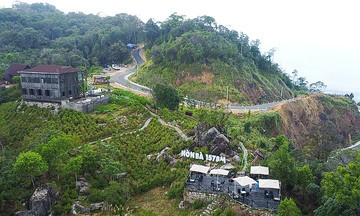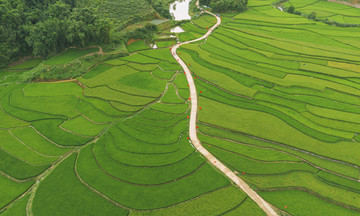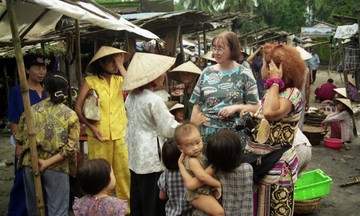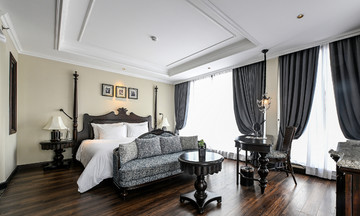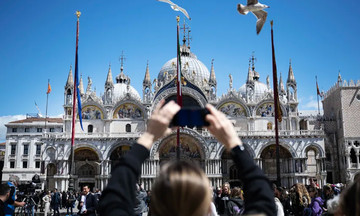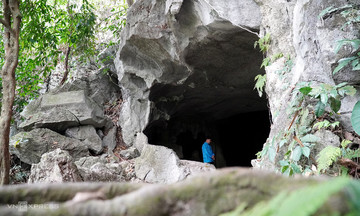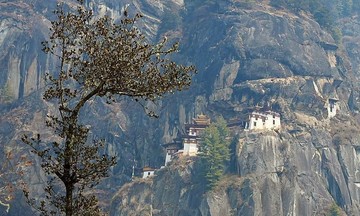24-year-old Taiwanese tourist Ariel Kang Chengxuan never expected 12/6 to be such a memorable day, waking up in the midst of a global hotspot.
"It was my 11th day of solo travel in Iran," Kang told CNN.
The night before, Kang had fallen asleep on a Persian rug at a homestay in Isfahan, a historic city famous for its blue-tiled domes. While she slept, Israel began airstrikes on key Iranian nuclear, missile, and military installations, initiating 12 days of intense bombardment across the country.
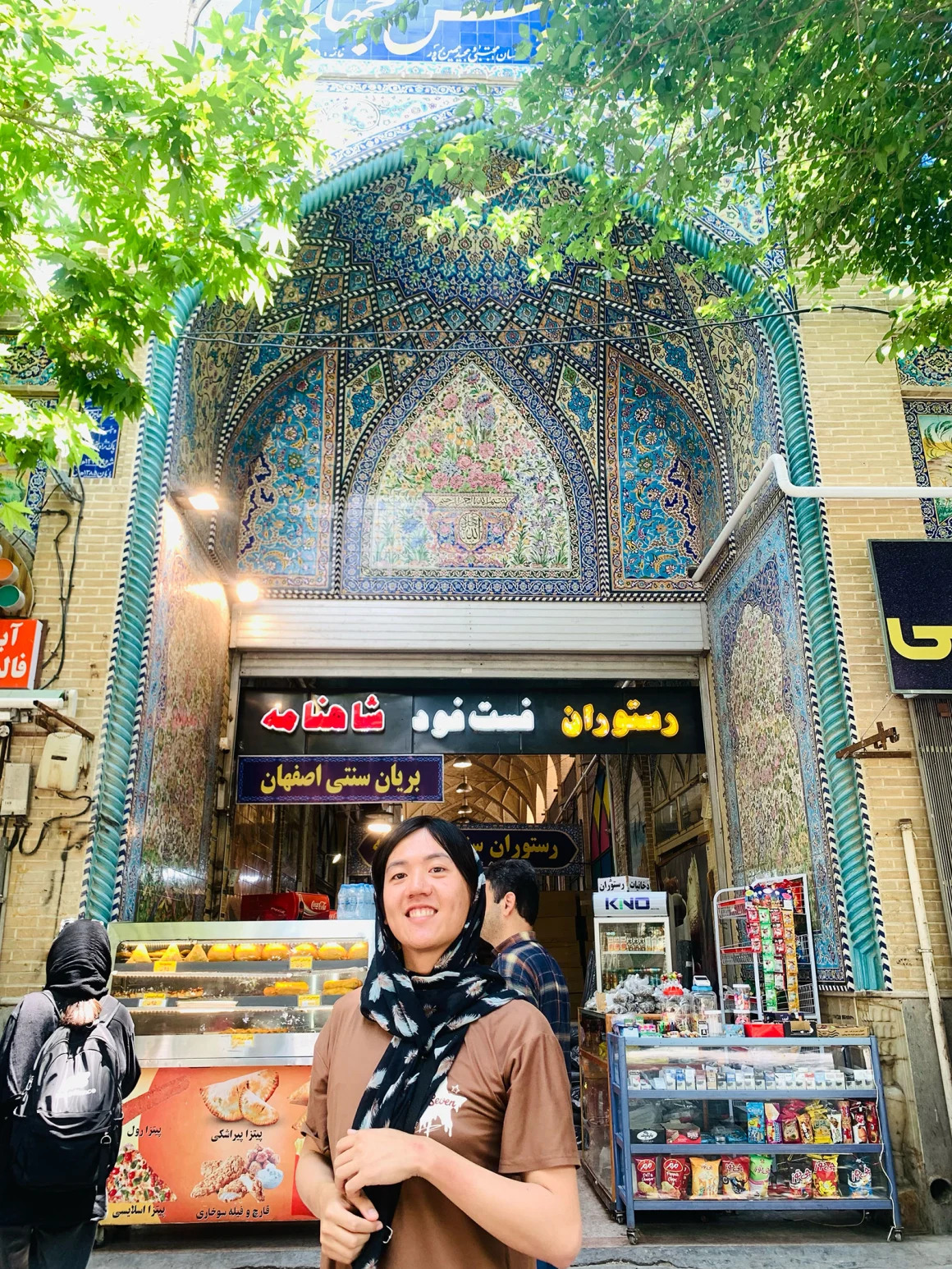 |
The Taiwanese tourist stands in front of a traditional restaurant in Isfahan. Photo: Ariel Kang |
The Taiwanese tourist stands in front of a traditional restaurant in Isfahan. Photo: Ariel Kang
Kang learned of the attacks through messages from concerned friends and family back home. She said life in Isfahan seemed normal; shops and supermarkets remained open, though the streets were quieter. The gravity of the situation hit her on the morning of 14/6 while watching the news with her host family.
"We were shocked to see the missile strikes. My hosts said they experienced similar conflicts last year and that the airport might close," Kang said, admitting her initial panic at being alone.
In June, the US and several other countries advised against travel to Iran due to the risk of terrorism and civil unrest. Despite these warnings, the seasoned traveler proceeded, making Iran her 51st country in three years. As the conflict unfolded, people urged her to contact the Chinese embassy, but she was told no evacuation buses were available.
"I heard the attacks weren't targeting civilians, so I wasn't overly worried," Kang explained, adding that the escalating situation forced her to quickly plan her exit.
Kang began her solo adventures in 2022 while in university, funding her travels with part-time work. Previous trips to what she described as the "somewhat chaotic" India and Egypt had prepared her for the challenges of Iran.
"I enjoy challenges; they create unforgettable memories," she said.
Kang obtained a 15-day Iranian visa online for 15 USD through a travel agency. She received it within a week and paid an additional 134 USD upon arrival. She noted that Iran lacked tourist infrastructure, with unreliable public transport difficult to navigate without knowing Farsi.
While acknowledging the difficulties of traveling in Iran, Kang said the locals' hospitality eased her initial concerns. She believed resilience and adaptability were crucial for navigating the country. Using couch-surfing, she stayed with locals, relying on their help whenever she faced difficulties.
Kang emphasized the Iranians' kindness, saying it made her trip memorable and highlighted the "special connection" between people.
Strangers often initiated conversations, but her past travel experiences helped her discern genuine friendliness. She was amused by those who, lacking English, used translation tools to greet her with "you are my guest".
"From old to young, men and women, they would look at me on the street and call me someone from the Far East," she shared.
Drawn to architecture, Kang was captivated by the Persian blue domes of Isfahan, a key stop on the Silk Road that connected China with the West for centuries. The city boasts numerous UNESCO World Heritage sites, including the Masjed-e Jāme, the oldest Friday Mosque in Iran and a model for mosque designs across Central Asia.
Kang's solo Iran trip hit a snag on 14/6 when road closures forced her to cancel her plans to travel north. She stayed in Isfahan, playing cards and cooking with her hosts. They offered her bread, tea, and traditional Iranian dishes, while she treated them to Sichuan hot pot (malatang) and bubble tea. This became her last stop before her long journey out of Iran.
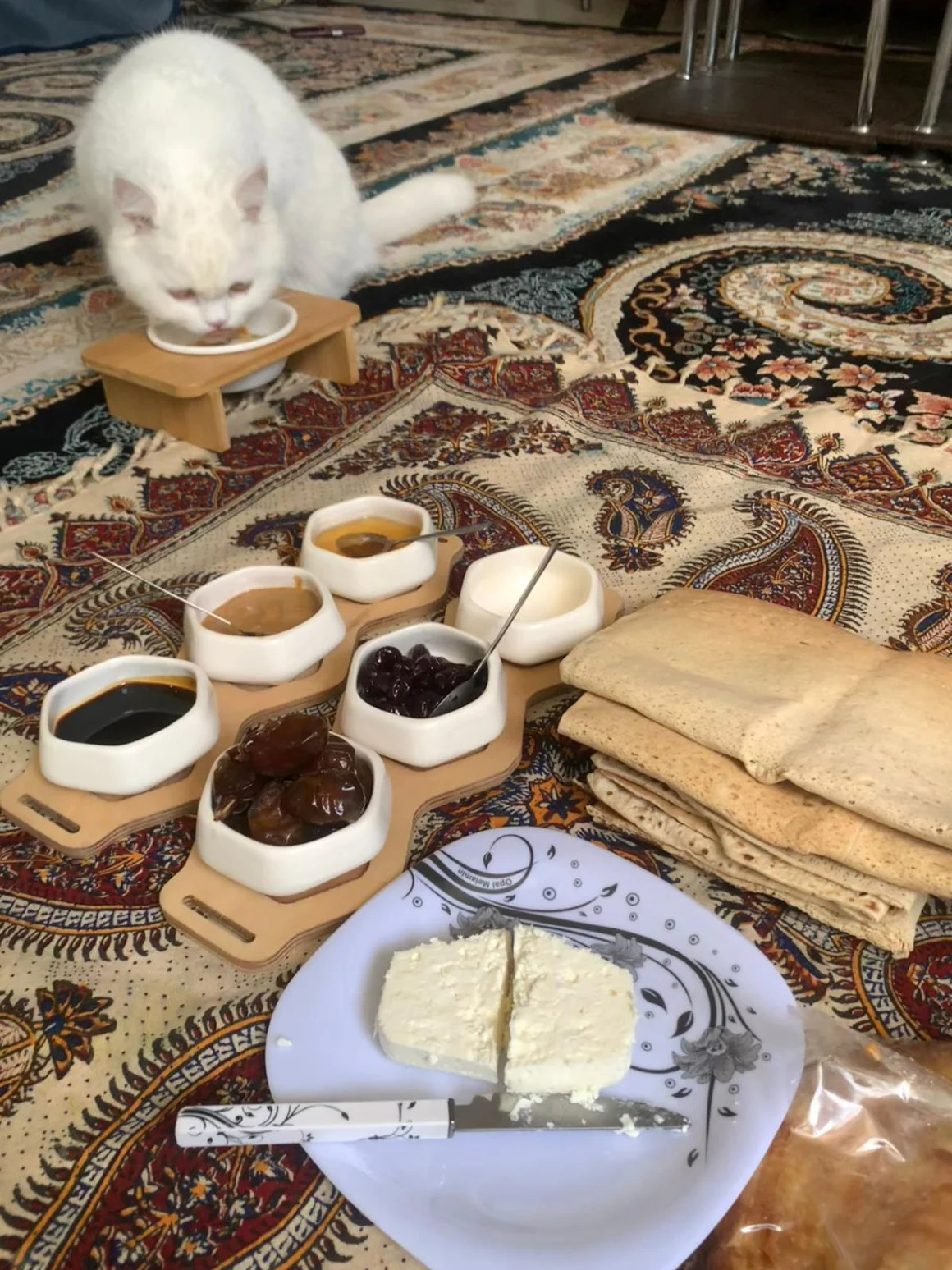 |
A typical Persian breakfast of bread and feta cheese, prepared by Kang's host family. Photo: Ariel Kang |
A typical Persian breakfast of bread and feta cheese, prepared by Kang's host family. Photo: Ariel Kang
Early on 15/6, she took a bus to Tehran. En route, police stopped the bus for a security check and asked her to wear a headscarf.
"Nearing Tehran, I saw black smoke rising, and I started to panic," she recalled.
Arriving in the Iranian capital at 2 PM, Kang rushed between bus stations, asking locals how to get to Tabriz in the northwest. Amidst the chaos, she heard gunshots and a woman screaming. She told herself to stay calm as the gunfire echoed every 10 minutes.
While some appeared uneasy, most Tehran residents remained calm. Kang noted that people continued dining as usual in a restaurant.
That evening, Kang boarded a bus leaving Tehran at 10 PM. The next morning, she awoke nearly 100 km outside the capital, stuck in heavy traffic fleeing the city. The 15-hour journey to Tabriz was grueling.
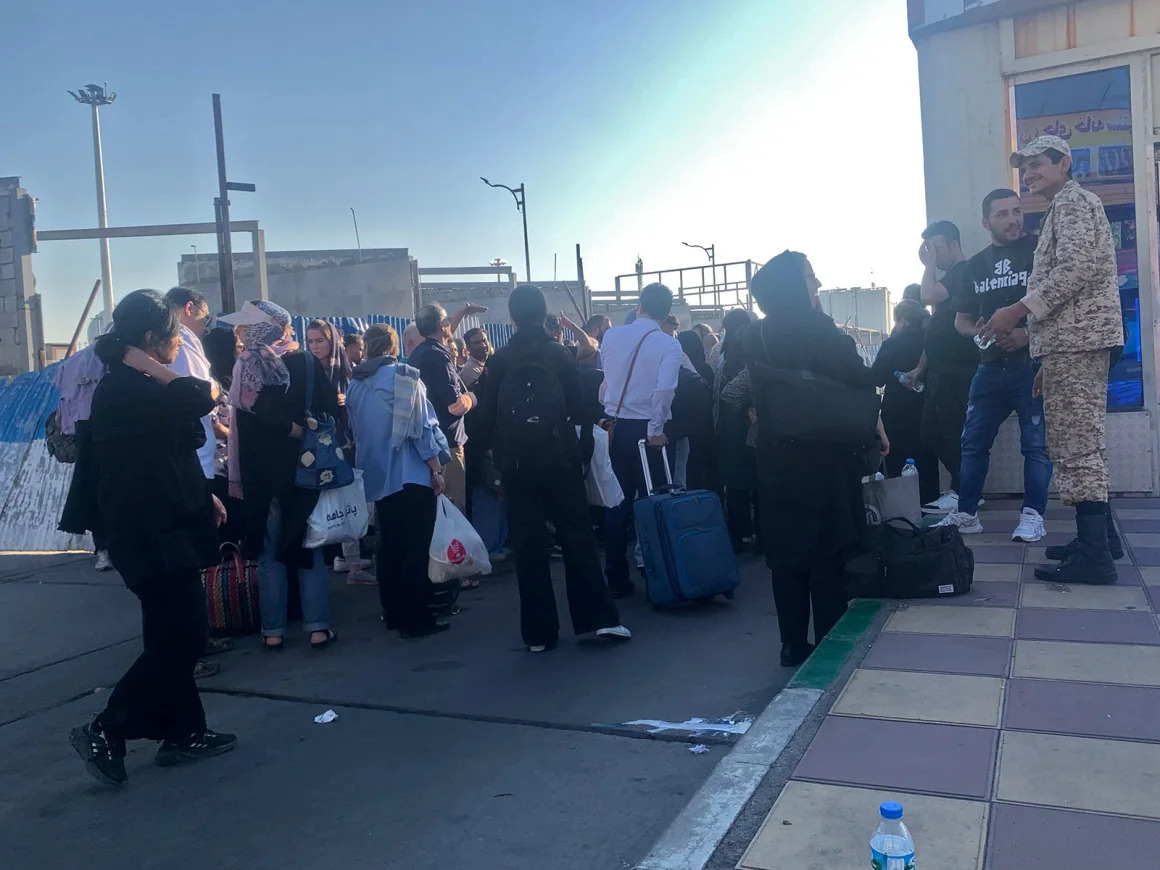 |
Crowds gather at a Tehran bus station, waiting to leave the city. Photo: Ariel Kang |
Crowds gather at a Tehran bus station, waiting to leave the city. Photo: Ariel Kang
"I was exhausted and hungry, and the bus had no toilet," she said. After several more bus rides and language barriers, she finally took a taxi to the Turkish border. Crossing at midnight, she endured another 22 hours of travel to Istanbul, where she caught a flight back to Taiwan.
Kang admitted she never anticipated encountering conflict during her trip. Her 104-hour escape from Iran was arduous, but her time exploring the country and meeting its welcoming people remained the most cherished part of her experience.
"I never regret going to Iran. Despite the conflict, the people were truly wonderful," Kang concluded.
Mai Phuong (CNN)




